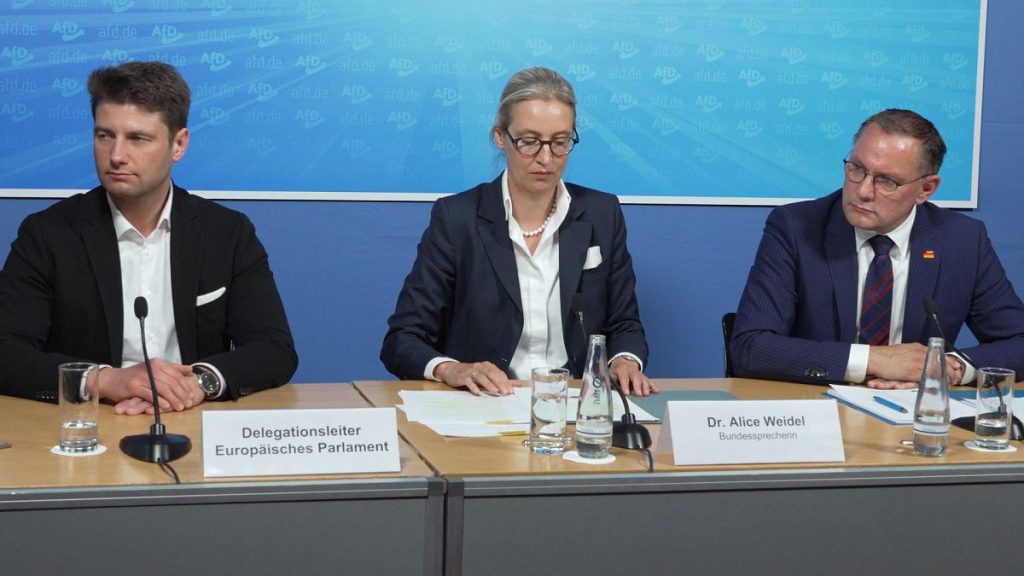Political scientist Dr. Antonios Souris believes that the Alternative for Germany’s (AfD) success in the European Parliament elections can be attributed to their effective social media campaign. The AfD’s top European candidate, Maximilian Krah, was ousted from the delegation as the party sought to rejoin the Identity and Democracy (ID) group in Brussels. Co-chairperson Alice Weidel called for a snap election and criticized the Greens, stating that people want the AfD to take on governmental responsibilities. Co-leader Tino Chrupalla mentioned that voters want to see a return to nuclear energy and continue driving combustion engine cars. The Christian Democratic Union of Germany (CDU) emerged as the winning party, but the AfD performed well among young voters.
Dr. Souris emphasized the importance of the parties focusing on policy solutions rather than competing with each other. He urged German Chancellor Olaf Scholz to better communicate policies to the public. Despite the positive voter turnout of 65%, Souris noted “worrisome developments” regarding regional differences in right-wing voting. He praised the democratic opposition led by the CDU and CSU but expressed concern about the increase in right-wing support in certain regions. Scholz, despite the Social Democrats’ historic defeat in the European elections, ruled out calling an early snap election, with the AfD aiming to become the new ruling government in the 2025 federal elections next year.
During the press conference in Berlin, Alice Weidel of the AfD claimed that people want the AfD to take on governmental responsibilities, criticizing the Greens for their policies. The AfD’s exclusion of Maximilian Krah as the top European candidate was a strategic move to realign with the ID group in Brussels after Marine Le Pen suggested expelling the AfD for being too extreme. Weidel also highlighted the party’s stance on issues like bringing back nuclear energy and allowing the continued use of combustion engine cars. Despite the CDU’s victory in the European elections, the AfD was able to attract support from young voters.
Dr. Souris outlined the AfD’s success to their well-executed social media campaign, emphasizing the need for the governing parties to focus on developing policy solutions rather than trying to outcompete each other. He praised the high voter turnout of 65% and recognized the democratic opposition led by the CDU and CSU. However, he expressed concern over the growing support for right-wing parties in certain regions. While Scholz ruled out calling a snap election despite the Social Democrats’ defeat, Weidel stated the AfD’s goal of becoming the ruling government in the 2025 federal elections. Overall, the AfD’s performance in the European elections and their strategic moves within the delegation indicate their ambition to increase their influence in German politics.
In conclusion, the AfD’s success in the European Parliament elections, despite the CDU’s victory, reflects their growing popularity among young voters and their strategic decisions within the delegation. Dr. Souris emphasizes the importance of parties focusing on policy solutions and effective communication with the public. While there are concerns about regional differences in right-wing support, the high voter turnout signifies strong democratic engagement. As the AfD aims to become the ruling government in the 2025 federal elections, their actions and messaging will continue to shape German politics in the coming years.












